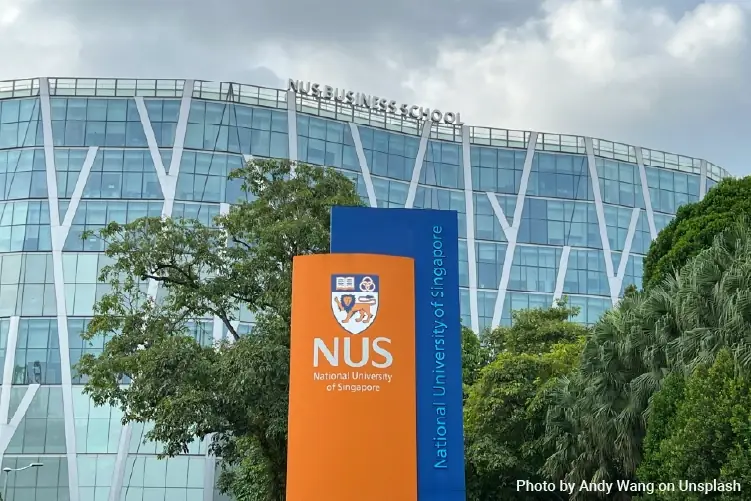How to Prepare for Your First International Flight as a Student

Your bags are packed, your passport is ready, and you’re counting down the days until the adventure of a lifetime begins. But if it’s your first international flight, you’re probably feeling a mix of excitement and nervousness (totally normal by the way). Fear not—we're here to make sure you’re fully prepared to conquer that airport like a pro and take off with confidence.
This guide is designed to help students and first-time international travelers, like you, figure out what you need to know before your trip. From packing essentials to navigating through the airport, we’ve got your back every step of the way.
Why Planning Ahead is Key
Travelling internationally can be overwhelming, especially for students heading abroad for studies. There are visas to arrange, documents to carry, and let's not forget the maze of airport security checkpoints. Planning ahead helps you avoid chaos and ensures your focus stays on the thrill of the experience instead of the stress.
Follow this checklist for a smooth travel experience.
1. Check Passport and Visa Requirements
First things first: your passport needs at least six months of validity from your travel date. Sounds picky, but many countries won’t even let you board if your passport is nearing expiration.
- Pro tip: Double-check the visa requirements for your destination. Is it an e-visa, or do you need to apply before you arrive? Visa approval can take longer than expected, so make sure to allow plenty of time and don’t leave this until the last minute!
Don’t Forget About Student Visas
If you’re travelling to study, you might need a specific category of visa. For example, international students flying to Singapore typically require a Student Pass. Make sure you have all the supporting documents for immigration purposes, like your acceptance letter, proof of funds, and accommodation details.
2. Pack Smart (and Light!)
Packing for your first international flight is like solving a puzzle. You want to bring everything you need—but without exceeding luggage weight limits or getting overwhelmed with unnecessary stuff.
Essentials for Your Carry-On:
- Travel Documents (passport, visa, student ID, boarding pass). Keep these handy!
- Laptop/Tablet: For entertainment and possibly chapter readings for school. Download your favorite shows and e-books in advance so you can watch or read them even on airplane mode.
- Snacks: International flights don’t always cater to your cravings. Pack granola bars or your snacks of choice, but keep in mind that some low-cost carrier airlines don’t allow outside food.
- Change of Clothes: You might spill coffee mid-flight (just saying).
- Headphones: Noise-cancelling ones if you've got them!
- Credit Card & Cash: For in-flight purchases, especially on low-cost carrier airlines where meals aren’t included.
- Medicine/Inhalers/Oils: Bring any necessary medications, inhalers, or essential oils for emergencies or sudden motion sickness. Make sure the oils are within the limitations though!
Checked Luggage Tips:
- Opt for versatile clothing pieces. Think lightweight layers, breathable fabrics, and comfortable shoes suitable for the warm and humid weather in Singapore.
- Don’t stuff your suitcase with things you can easily buy abroad. Shampoo? Toothpaste? They sell that everywhere.
- Use packing cubes to organise and squeeze in more items. Use vacuum seal bags if you really can't part with some outfits.
And remember to weigh your luggage before leaving for the airport to avoid awkward repacks at the check-in counter.
3. Learn How International Airports Work
Airports can vary by country, but here’s the basic roadmap for navigating them efficiently:
- Check in at the airline counter or automated kiosks.
- Drop off your checked luggage (if applicable).
- Go through immigration and security. Pro tip for newbies? Empty your pockets, remove watches and belts beforehand, and wear slip-on shoes to speed up the process. Also, take out laptops and tablets in advance so you won't have the TSA agent stressing you out.
- Find your gate and take note of the boarding time. Relax, but keep an eye on your flight status.
Bonus Tip for Long Layovers
If you've got a long layover, many international airports (like Singapore Changi or Doha's Hamad Airport) have awesome amenities. Think free movie theatres, napping pods, and indoor gardens.
4. Prepare for Cultural Differences
Every country has its quirks, from security rules to airport signage. Research your destination ahead of time to avoid surprises.
- Example: Some countries require you to fill out a landing card, declaration form, or complete an online arrival card upon arrival. Keep a pen packed for physical forms! For students heading to Singapore, don’t forget to complete the SG Arrival Card online before your trip and be ready to share details about your school and accommodation with immigration authorities on arrival.
And don’t forget to download Google Translate or similar apps to help with language barriers.
5. Plan for Your Arrival
Landing in a new country can feel both exhilarating and overwhelming. Reduce stress by having a clear arrival plan.
- Ride Options: Research transportation in advance. Do you need to pre-book an airport pick-up service, take a local train, grab a taxi, or use a free shuttle service to your hotel?
- Currency Exchange: Switch some cash for the local currency at a favourable rate before you leave. Airport exchange rates tend to be pricey. If you don't like carrying cash, make sure to have your contactless payment methods and cards activated for overseas use.
- Emergency Contacts: Memorise or write down key numbers like your university’s international office, your accommodation, and emergency services. Phones die, but paper doesn’t.
6. Stay Connected
You’re going to want to share your first airplane selfie on the gram, obviously. But on a more practical note, having a way to stay connected is non-negotiable.
- Look into international roaming plans before leaving, or consider purchasing a local SIM when you arrive or an eSIM in advance.
- Download maps, travel guides, and any important documents onto your device in case Wi-Fi is spotty.
Being connected also helps in emergencies and makes calling a cab or finding your accommodation so much easier.
7. Stay Calm and Confident
Even when things don’t go perfectly, remember that travel is all about the unexpected! Missed a flight? Lost your luggage? There’s a solution for nearly every problem, and airports have staff and services to help.
Be sure to give yourself time to rest on the plane so you don’t feel zonked when you land. Hydrate, walk around the aisles stretch your legs (yes you can do that), and maybe even chat with the person sitting next to you if they're up for it (they might just offer killer travel advice)!
Your Adventure Awaits
Getting ready for your first international flight is a mix of preparation and expectation. Sure, there are lots of steps to follow, but every bit of planning is worth it for the adventure that lies ahead.
Travelling as a student gives you the rare chance to explore the world while it doubles as your playground and classroom. By taking the time to prepare now, you’ll set yourself up for confidence and success from the moment you step onto that plane.
And if you’re looking for more life-saving travel tips, guides on how to pack for university abroad, or advice on meeting other international students, subscribe to our newsletter or explore our resources. Good luck, and bon voyage!



